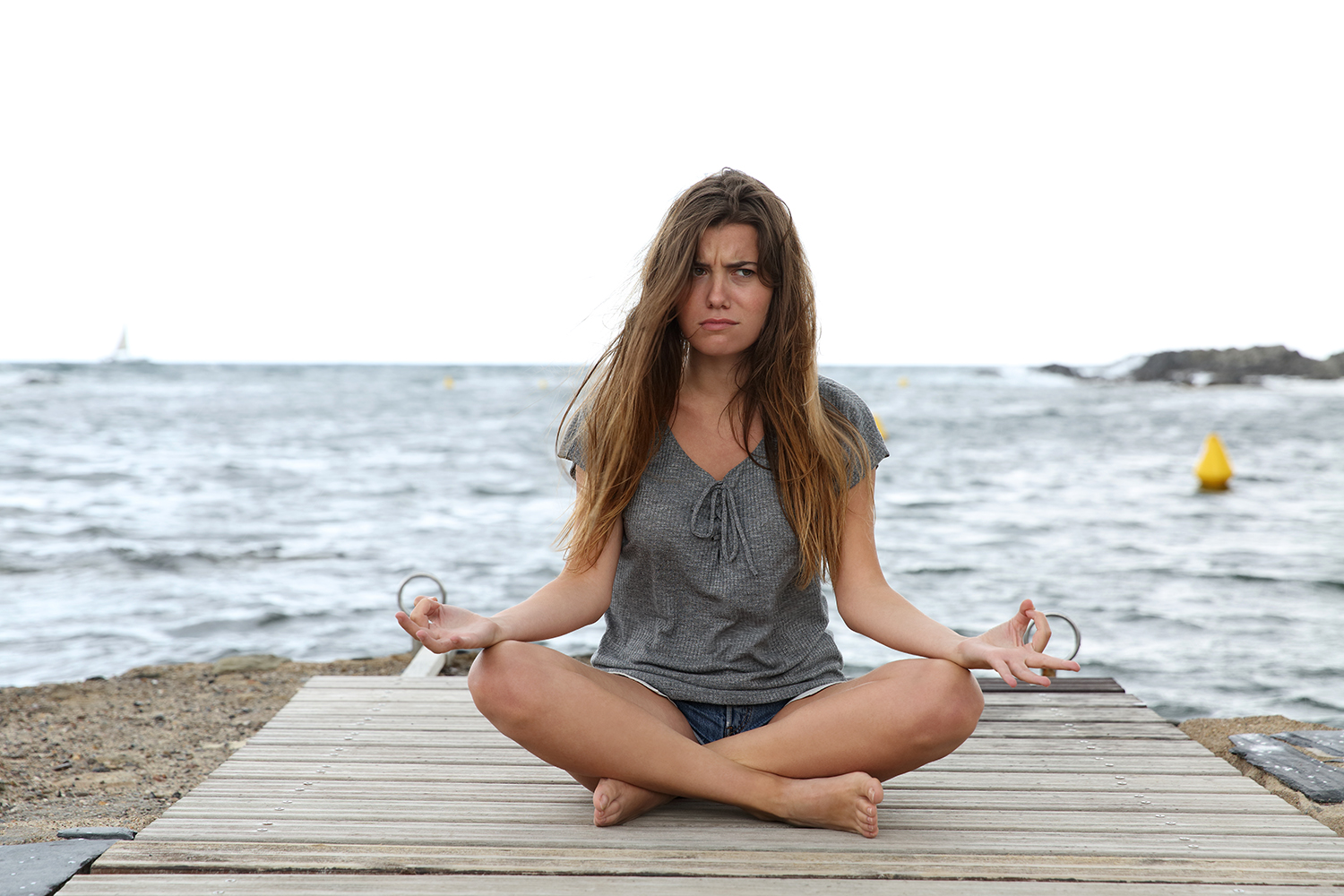Mindfulness and Self-Criticism
Union with Our Body, Mind, and Spirit

Photo 119277088 © Antonio Guillem | Dreamstime.com
With spring, we feel excited for longer days and the chance to get outside and move more in the sun. We also review what we did over the winter, often, not much in the way of movement and self-care. This includes a tendency to examine our bodies, with judgment. We know we're going to be putting away the baggy winter clothes that cover things we judge negatively as being too much (weight, for example) and lacking (muscles and firmness, for example). That self-judgment is critical and self-sabotaging.
We do not improve by being harsh in our thoughts, words, or actions towards ourselves.
The First Step
The foundation for yoga practice is based on the ethical guidelines laid out in Patanjali’s eightfold path of yoga. The first ethical tenet of yoga is ahimsa, which means non-harming or non-violence in Sanskrit. If you recall from prior articles, yoga means union. Being in union with our bodies, minds, and spirit first before we can be in union with others. And what we say to ourselves matters. There are few things more harmful than the critical words we say to ourselves.
Ahimsa reminds us that, in yoga, we listen deeply to our body’s inner wisdom and align our actions with an intrapersonal attunement. How we speak in our head is how we speak to others, whether we realize it or not. We may think we’re being sweet-as-pie when we communicate with others, yet they often see right through the inauthenticity. Humans have an uncanny ability to recognize this. So, be mindful of what you say in your head that only you can hear.
If you notice that self-critical voice arise, don't judge yourself, it adds salt to the wound. Instead, get curious about it and make room for the part of us that criticizes - it's likely an attempt to make ourselves better or happier. Mindfully listening to this voice allows us to own it, get curious about it, and recognize we have an inner voice calling for change.
Want that extra piece of candy? Pause, breathe, return to center and ask yourself, “Am I eating this to escape something that is bothering me or as an act of appreciation for something that brings pleasure?”
Want to argue with a co-worker who annoys you? Pause, breathe, return to center, and ask yourself, “Am I so bothered by the this person because it is an important problem that true harm is imminent or is it something I recognize about myself in them that I want to avoid?”
Step into the space of the experience with a sense of curiosity. Allow judgments of self and others to fall away. See if you can merely see an experience as pleasant, neutral, or unpleasant and then trust yourself and your mindfulness practice to carry you forward in truth and authenticity. Then, rather than suffering, we practice ahimsa. We find self-compassion and self-acceptance. This creates space to let go of things that could be self-harming or other harming and act with integrity instead. We know we are moving in the direction of mindful transformation and peace.
Remember this quote:
Watch your thoughts, they become your words; watch your words, they become your actions; watch your actions, they become your habits; watch your habits, they become your character; watch your character, it becomes your destiny. Lao Tzu
Alyson Phelan, CYT-500, CMMT, TRCC
Alyson Phelan, E-RYT 500, CMC, TRCC, YACEP
Experienced Registered Yoga Teacher 500 hour, Certified Mindfulness Coach
Trauma Responsive Care Certified, Yoga Alliance Continuing Education Provider
Founder of Present Moment Mindfulness and Yoga
Don't Miss a Thing!
Get the latest articles, recipes, and more, when you sign up for the tasteforlife.com newsletter.

